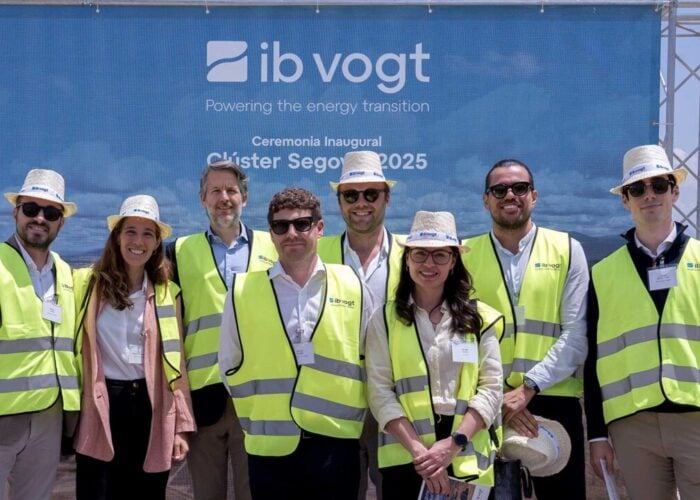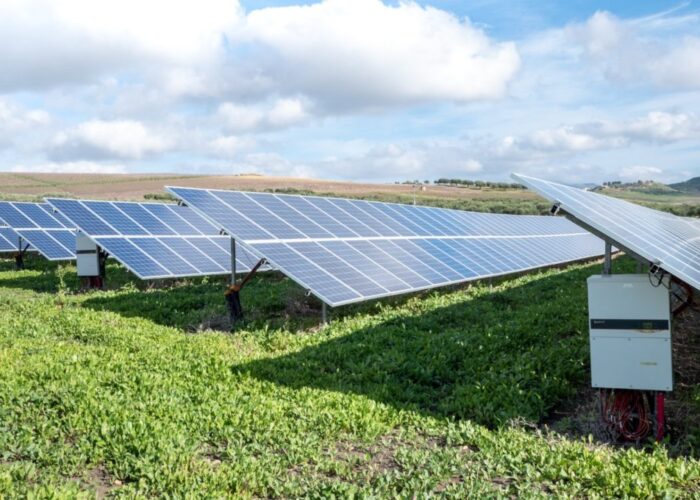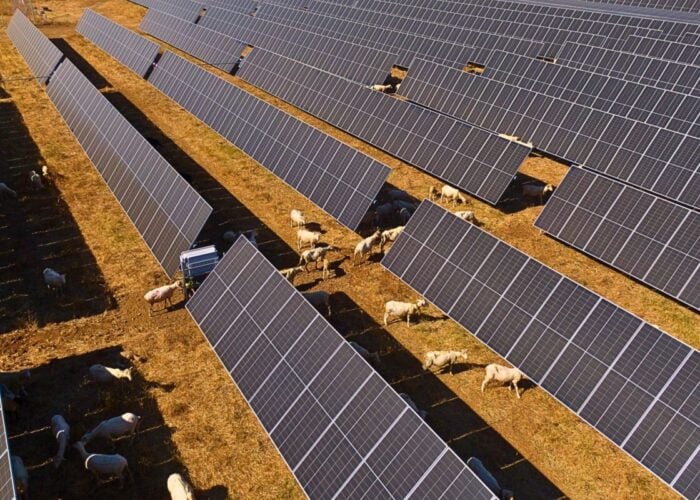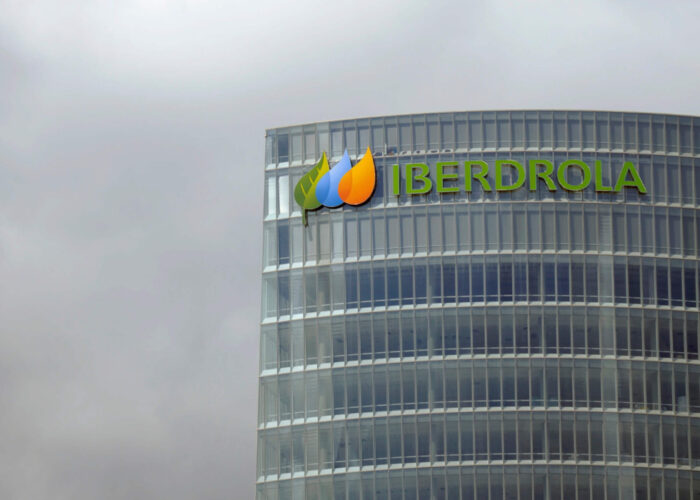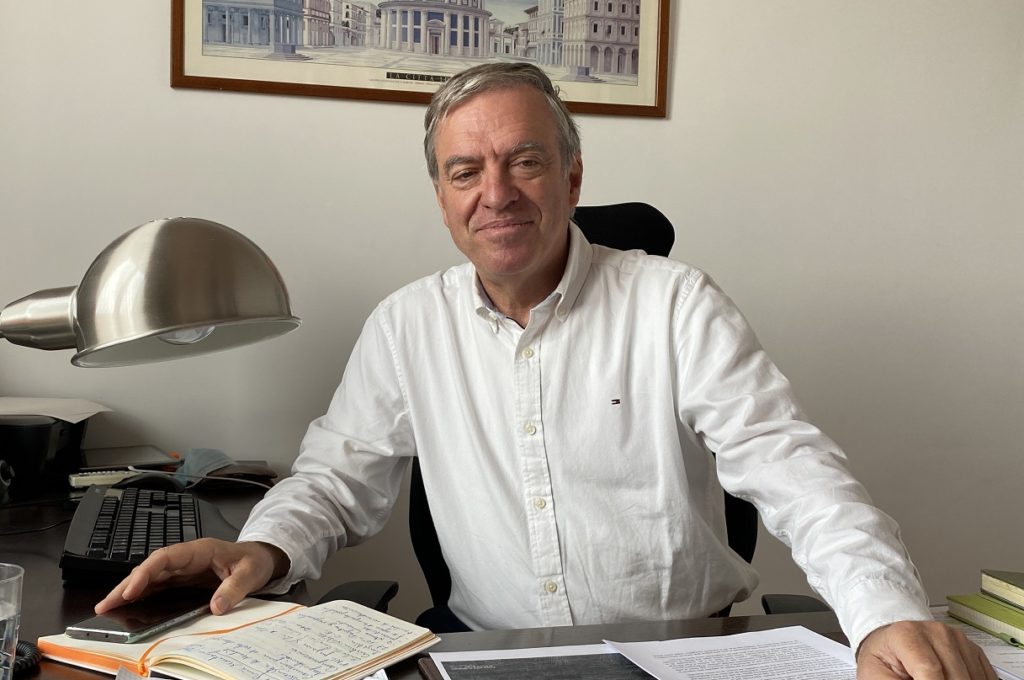
Adding to its booming power purchase agreement segment, Spain’s solar industry has been boosted by the launch of the country’s new auction mechanism that is expected to support at least 10GW of PV capacity by the end of 2025.
While solar bidders secured two-thirds of available capacity in the first of the new auctions earlier this year, there have been calls for additional policy support for smaller-scale projects and energy storage systems.
Unlock unlimited access for 12 whole months of distinctive global analysis
Photovoltaics International is now included.
- Regular insight and analysis of the industry’s biggest developments
- In-depth interviews with the industry’s leading figures
- Unlimited digital access to the PV Tech Power journal catalogue
- Unlimited digital access to the Photovoltaics International journal catalogue
- Access to more than 1,000 technical papers
- Discounts on Solar Media’s portfolio of events, in-person and virtual
PV Tech caught up with José Donoso, head of Spanish PV association UNEF, to discuss the policies that the solar sector is asking for and if the country is capable of reaching its target of 39.2GW of installed PV by the end of the decade.
PV Tech: What is the outlook for 2021 in Spain’s solar industry?
José Donoso: For ground-mounted projects we expect a similar trend to last year, especially driven by the signing of power purchase agreements (PPAs) and merchant projects, since it is too early to think that those that won in the last auction will be realised.
Until 2019 the weight of photovoltaic energy compared to the rest of renewables has been oscillating annually between almost 8%, and close to 10%, depending on hydraulicity. But already in 2020 we can see a change in trend due to all the power introduced in 2019 (4,202MW), which almost doubled what had been installed until that year. And the figure for the first weeks of 2021 is very promising too, so everything points to a consolidation of the uptrend of this percentage.
On the other hand, it is expected that the planned subsidies will counteract the months that have been lost with the moratorium to request new access and connection permits established with the eighth transitory provision of RD [Royal Decree] 1183/2020.
Are you happy with the new auction mechanism? With so many PPA-based projects in Spain, are the auctions necessary?
For UNEF, the renewables auction has been of great satisfaction for several reasons. On the one hand, it brings to light the success of the chosen model; on the other, it highlights the competitiveness of photovoltaic energy by being awarded 2,036MW of the 3,034MW auctioned. The average price of winning photovoltaic bids was €24.47/MWh (US$29.62/MWh), a guaranteed and sustainable payment for the next 12 years.
It should also be noted that there was no concentration: 26 actors managed to win power. 70% of these companies are Spanish and 81% are UNEF member companies, so we are very satisfied.
The good results of the renewable auction guarantee its effectiveness and we hope that they will be maintained over time and that they will be similar to the one recently held, which, as we said, has been very satisfactory. In fact, UNEF advocates holding before the end of the year a specific auction for small projects, less than 10MW, offering 20% of the capacity, 600MW, and another only for projects with storage.
Auctions are necessary because both PPAs and merchant projects are limited when it comes to obtaining financing.
What are UNEF members asking for in terms of policy?
Our members ask us to promote a stable legal framework. Also, transparency and agility in administrative processing processes. For example, in the processes of granting access and connection permits to the electricity transmission and distribution networks, in which they also request that there are conditions that guarantee equal opportunities.
As far as auctions are concerned, we work for the correct compliance of the planned schedule. Also so that specific auctions are held for small projects.
For the development of self-consumption, they request the reduction of the fixed component of the electricity tariff or the reduced VAT for installations in the domestic sector. Likewise, to speed up procedures, we have managed to get 11 Autonomous Communities to eliminate the building permit.
In addition, to comply with the mandate of UNEF member companies to safeguard the penetration of photovoltaic energy use in our country in the best conditions for consumers, we have launched a quality seal for installers which establishes a system certification which guarantees that photovoltaic self-consumption installations are carried out in accordance with the rules established by a committee of experts from the sector.
Spain’s national energy and climate plan (NECP) includes an ambition of 39.2GW of installed PV capacity by 2030. Will this be possible to achieve?
We are convinced not only that it can be achieved but that it will be overcome. The NECP estimates that in Spain between €20 billion – €25 billion will be invested only in photovoltaic energy. It is an occasion that, well taken advantage of, can be the origin of an industrial revolution promoted by the PV sector.

